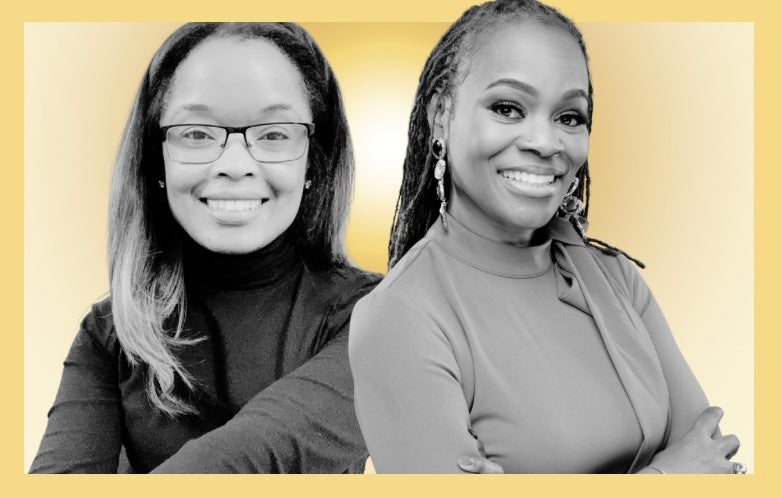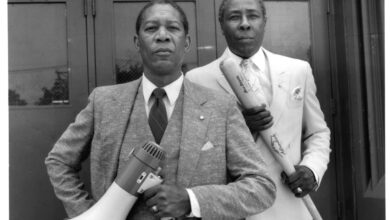A ‘Them Problem’: Confronting The Trauma And Misplaced Shame Of Racism With Dr. Alfiee M. Breland-Noble


I knew I was Black but tied no more significance to that fact than I would a freckle, a mole, or right and left-handedness. My “Black” was merely a circumstantial genetic effect. As a kid, it didn’t occur to me that it should somehow limit potential or signal inferiority.
My northern California upbringing was a paragon of diversity. The differences of complexion, hair texture, and accent among Hispanic, Asian, Caucasian, and Black playmates were never a cause for self-consciousness. It mirrored the worlds reflected on School House Rock, The Cosby Show, and other racially harmonious programming that dominated children’s television in the ’80s. It wasn’t until my Vietnamese playmate told me she could no longer play with me because her daddy said Black people were stupid and lazy that I first sensed something was off.
By the time I reached fourth grade, my family had relocated to a small town in the Deep South. There, I became quick friends with a classmate who happened to be white. We were inseparable, in the way young girls often are, mirroring each other’s interests and finding connection through shared obsessions. When she got a Caboodles cosmetics kit for Christmas, I had to have one, too. When she proclaimed Julia Roberts her favorite actress, I became obsessed with the movie Pretty Woman.
Naturally, when her birthday rolled around, I could barely contain my excitement. When invitation day came, I anxiously awaited receiving mine. So, when the school day ended, with no invite in hand, I asked if she’d forgotten it. Noticeably baffled, she responded: “Black people aren’t allowed in my house.” Here, my friend, who I absolutely adored, was as confused by my request for an invitation as I was by the absence of it. Again, I struggled to process why my Blackness insisted on sabotaging me.
It was around this time that I recognized that rhythm paralleled in the grown-up world around me. It showed up when running errands with my family, as the friendly banter of bank tellers gave way to curt and snappy responses when my parent approached the counter. It was evident in how Black people measured their validity in direct proximity to White approval. It showed up as timid smiles and awkward small talk as Southern hospitality negotiated the dictates of racial hierarchy. It was pure theater with a script to which everyone around me seemed well-rehearsed—we were cast as villains. Clearly, my Blackness had committed a crime and framed me as the culprit, and every day, at every interaction, the onus was mine to perform in ways to put the audience at ease.
In preparation to interview psychologist Dr. Alfiee M. Breland-Noble, a renowned racial trauma expert, and co-author of the Handbook of Mental Health in African American Youth, I felt free to unearth these experiences. What began as research begat self excavation until I found myself cycling through past experiences from classrooms to boardrooms in newsrooms and beyond. I had the privilege of engaging with Dr. Breland-Noble, who generously held space for intimate discussion. Our conversation was the catalyst on the power of reframing to defang the venomous impact of racially charged encounters, in real time.
A “Them Problem”: Disowning The Shame of Racism
Our shame has a story to tell—one of inadequacy, rejection, and moral failure. While some narratives are rightly placed, others are falsely attributed and etched into our psyches by gaslighting and scapegoating. Whether experienced in childhood, on the job, or in day-to-day interactions, the misattribution of blame and shame from racism can distort self-perception. “We have to change our framing and language around these experiences,” Dr. Breland-Noble said.
“Imagine if someone had told you before walking into that environment, ‘These people are racist?’ Dr. Breland-Noble asked after carefully listening to my recounting a painful workplace experience. “You may have gone in with a different perspective. You would not have internalized their behavior. You would have known it’s them, not you.” She’s right. And therein lies the opportunity of reframing to cast the shame of racism where it belongs. “It’s not a ‘you’ problem, it’s a ‘them’ problem,” Dr. Breland-Noble said.
A Distinct Approach to Reframing Racial Trauma
Dr. Breland-Noble offers a distinct approach to reframing: “When someone mistreats you ‘because you are Black,’ that’s not why they did it. They did it because they are racist. When somebody discredits you in the workplace ‘because you’re a Black woman,’ that’s not what’s happening. It is their misogynoir that is the problem, not your identity,” she said. “Your Blackness and your womanness are not on trial.”
This perspective may be intuitive for some, particularly of Z and Alpha generations, but as someone who came of age with polarizing cultural messaging surrounding Blackness as either “super predatory“ or stately, exceptional, or “welfare queen“— Dr. Breland-Noble’s reframing work is particularly impactful and liberating in that it doesn’t demand Black excellence, it creates space to just be. “We deserve to occupy space; I need us to know that in our bones. How others perceive is not our issue,” she stated. “Our Blackness is immutable—praise God! We’re allowed to just be.” It’s true.
What’s also true is that the power dynamics of racism exist in such a way that external perceptions do matter. For better or worse, how we’re perceived impacts our lives and our livelihoods. It’s a fact of Black American life to which Dr. Breland-Noble is keenly aware. The conversation is far more complicated and nuanced than the space of one article allows, but the aim isn’t to overlook the complexities of racism, but to reject the burden of internalized shame it imposes upon its objects.
Source link : www.essence.com
























































